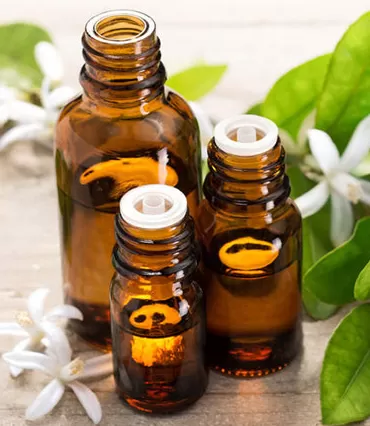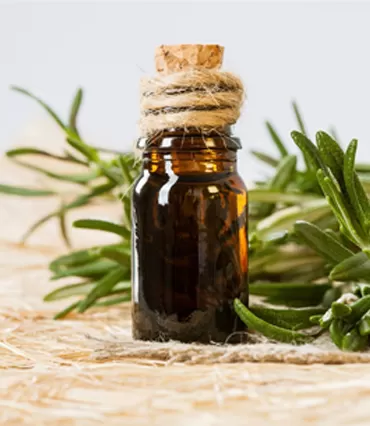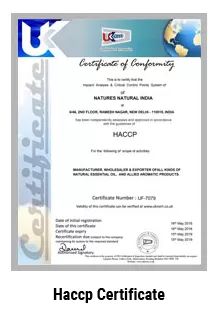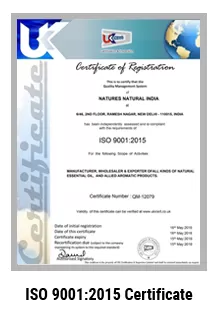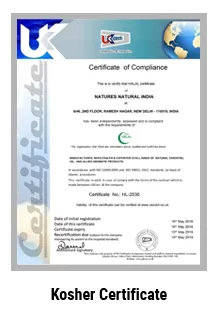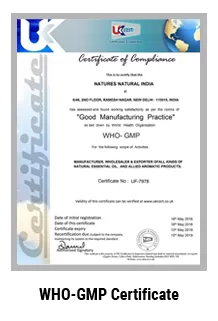Table Content
|
Introduction |
|
What is Peppermint Oil? |
|
Uses of Peppermint Oil |
|
Benefits of Peppermint Oil |
|
Peppermint oil Side Effects and Safety Concerns |
|
Drug Interactions with Peppermint Oil |
|
Who Should Avoid Peppermint Oil? |
|
How to Use Peppermint Oil Safely |
|
Conclusion |

Introduction
Peppermint oil is one of the most popular essential oils, This essential oil is known for its cooling and refreshing properties.
It is a natural treatment that has been used for centuries in various cultures for its medicinal and therapeutic qualities.
This essential oil is extracted from the peppermint plant (Mentha × piperita), a hybrid of spearmint and watermint.
With its versatile uses in health, beauty, and culinary applications, this essential oil has earned its place in many households around the world.
we will discuss its uses, benefits, side effects, and safety tips, So you can get the best benefits from this oil.
What is Peppermint Oil?
Peppermint oil is a concentrated oil derived from the leaves of the peppermint plant.
The peppermint plant itself is a hybrid between spearmint and watermint.
The scientific name for peppermint is Mentha × piperita.
The oil is known for its cooling sensation and its refreshing minty aroma.
It is extracted using steam distillation, a process where steam is passed through the leaves of the plant, causing the oil to evaporate and then condense into liquid form.
Peppermint essential oil contains several key compounds that give it its therapeutic benefits, including menthol, menthone, limonene, and eucalyptol.
These compounds are responsible for this oil's anti-inflammatory, antibacterial, analgesic, and antifungal properties, making it a highly effective remedy for various conditions.
Uses of Peppermint Oil
Peppermint oil has a wide range of uses across different areas of life, from enhancing your health and beauty routines to elevating your culinary experiences.
Below are some of the most popular and beneficial uses of peppermint oil.
1. As a treatment for Digestive Issues
Peppermint oil is popular for its ability to support digestive health.
It is commonly used to reduce symptoms related to irritable bowel syndrome (IBS), bloating, indigestion, and nausea.
-
IBS (Irritable Bowel Syndrome): Research has shown that peppermint essential oil can be highly effective in managing symptoms of IBS, such as abdominal cramps, bloating, and discomfort. The menthol in this oil helps to relax the muscles in the intestines, reducing spasms and providing relief from pain and bloating.
-
Indigestion and Nausea: Whether you suffer from morning sickness, motion sickness, or nausea after a heavy meal, the oil can provide relief. It works by soothing the stomach and promoting better digestion. It also has mild anti-inflammatory properties, which help to calm inflammation in the digestive tract.
2. Topical Application for Pain Relief
Peppermint oil is a popular natural treatment for pain relief, especially when applied topically.
Whether it’s a headache, sore muscles, or joint pain, this oil's cooling effect can provide quick relief.
-
Headaches and Migraines: When applied to the temples, forehead, or back of the neck, diluted peppermint oil can help reduce the intensity of tension headaches and migraines. The menthol in this oil helps improve blood circulation and eases muscle tension, making it an effective remedy for headache relief.
-
Muscle and Joint Pain: Peppermint oil is also effective in alleviating pain caused by sore muscles and joint discomfort. Its anti-inflammatory properties can help reduce swelling and promote healing, making it a popular choice for people with conditions like arthritis or those recovering from physical activity.
3. As a Flavoring Agent
It is widely used as a flavoring agent in foods and beverages.
Its fresh, minty flavor is commonly added to candies, chocolates, gum, and baked goods.
It’s also a popular addition to beverages, such as tea and cocktails.
-
Oral Care: this oil is an essential ingredient in many toothpastes, mouthwashes, and gum due to its ability to freshen breath and fight harmful bacteria in the mouth. It helps promote better oral hygiene by eliminating germs and bacteria that can cause bad breath and other oral health issues.
-
In Cooking: In cooking this oil is also used to flavor various dishes, particularly during the holiday season. It’s added to desserts like cakes, cookies, and brownies, as well as to hot beverages like hot chocolate or peppermint tea for a cool, refreshing twist.
4. For Skincare and Haircare
Peppermint essential oil is highly valued for its cooling, soothing, and refreshing properties, making it a popular ingredient in skincare and haircare products.
-
Skincare: this oil can be used to help soothe irritated skin. It provides relief from conditions like sunburns, rashes, and itchy skin. The oil also has natural antiseptic properties, helping to keep the skin clean and reduce the risk of infection. It can also reduce redness and inflammation, giving your skin a healthy, refreshed appearance.
-
Haircare: It is often included in hair care products to support healthy hair growth. It stimulates blood circulation to the scalp, which may help encourage hair growth and reduce hair loss. It is also an effective remedy for itchy or dry scalps and can help reduce dandruff and flakiness.
-
Aromatherapy: Peppermint oil’s invigorating scent is frequently used in diffusers to create a refreshing atmosphere. It can improve mental clarity, boost energy, and help increase focus, making it a great choice for those needing an extra burst of motivation or relaxation.
Benefits of Peppermint Oil
In addition to its many uses, peppermint oil offers a range of impressive health benefits.
Below are some of the most notable advantages of using peppermint oil:
1. For Irritable Bowel Syndrome (IBS)
One of the most widely studied benefits of peppermint essential oil is its ability to help with IBS.
It has been shown to reduce symptoms such as abdominal pain, bloating, and diarrhea.
This oil relaxes the smooth muscles of the gastrointestinal tract, thereby reducing spasms and improving digestion.
2. For Other Gastrointestinal Conditions
This oil has been found to be effective in treating other digestive issues such as indigestion, gastritis, and abdominal pain.
It has a soothing effect on the digestive tract, helping to reduce inflammation and promote better digestion.
It is particularly useful for people who experience digestive discomfort after eating certain foods.
3. For Nausea Relief
This oil is a well-known remedy for nausea, whether it's due to motion sickness, morning sickness, or postpartum nausea.
Inhaling peppermint oil or taking it in capsule form can significantly reduce feelings of nausea and help restore comfort.
4. Pain Relief
Peppermint essential oil is also highly effective in relieving various types of pain, including headaches, migraines, and muscle soreness.
The menthol present in this oil works as a natural analgesic, providing relief by soothing sore muscles and promoting better circulation.
5. Skin and Hair Care
This oil has many benefits for skin and hair.
It can help calm irritated skin, reduce inflammation, and encourage healthy hair growth.
It also works as an excellent anti-dandruff solution, helping to prevent and treat flakes caused by an oily scalp or other scalp issues.
6. Antibacterial and Antifungal Properties
It has powerful antibacterial and antifungal properties.
It has been shown to inhibit the growth of harmful bacteria like E. coli and Staphylococcus aureus.
It also helps fight fungal infections such as Candida, making it a valuable tool for maintaining a clean and healthy environment both inside and outside the body.
Peppermint oil Side Effects and Safety Concerns
While this oil is generally safe to use, it’s important to be aware of potential side effects and safety concerns.
Here are some common issues that may arise:
1. Heartburn
This oil can sometimes trigger heartburn or acid reflux, especially in people who are prone to GERD (gastroesophageal reflux disease).
The oil can relax the muscles that control the flow of stomach acid, which can lead to discomfort and a burning sensation.
2. Skin Irritation
Always remember to dilute it with a carrier oil (like coconut oil, olive oil, or almond oil) before applying it to the skin.
Applying undiluted peppermint essential oil directly to the skin can cause irritation, redness, or even an allergic reaction.
3. Toxicity in High Doses
The oil contains pulegone, which can be toxic in large amounts.
It’s important to use this oil in moderation and always follow proper dosing guidelines to avoid any adverse effects, especially in children or pets.
Drug Interactions with Peppermint Oil
This oil can interact with certain medications, particularly those that are processed by the liver.
It’s important to consult with your doctor before using this oil, especially if you are taking prescription medications.
-
Cyclosporine: This medicine, used to prevent organ rejection, may react with this oil and alter its metabolism in the liver.
-
Antacids and Heartburn Medications: It can interfere with the action of antacids, H2 blockers, and proton pump inhibitors,
These medications are often used to treat acid reflux.
Who Should Avoid Peppermint Oil?
While peppermint oil has many benefits, it’s not suitable for everyone.
Certain groups of people should avoid using peppermint essential oil or take extra precautions.
1. People with G6PD Deficiency
Those with G6PD deficiency, a genetic condition that affects red blood cells, should avoid using Menthol oil named as peppermint oil.
It may cause damage to red blood cells in these individuals.
2. Young Children and Pets
This oil should not be used on young children or pets, as it can cause serious breathing problems or other complications.
Always store this oil out of reach of children and pets.
How to Use Peppermint Oil Safely
To enjoy the many benefits of peppermint oil while staying safe, it’s important to follow these usage guidelines:
1. Topical Application
Dilute this oil with a carrier oil, such as coconut oil or jojoba oil, and apply it to the affected area.
Be sure to do a patch test before applying it to larger areas of your skin to ensure there is no allergic reaction.
2. Aromatherapy
Peppermint essential oil can be used in an essential oil diffuser to freshen the air and promote a sense of focus and relaxation.
Just add a few drops to the diffuser, and enjoy its uplifting effects.
3. Consumption of peppermint oil
If you plan to ingest peppermint oil, only do so in the form of capsules or tablets that are designed for oral consumption.
Consult your doctor before using this essential oil internally.
4. Inhaling Peppermint Oil
To alleviate symptoms like headaches or nausea, you can inhale this oil by adding a few drops to a tissue or applying it to a handkerchief.
Conclusion
Peppermint oil is a powerful and versatile essential oil that can be used to address a wide range of health, beauty, and culinary needs.
Whether you're using it to ease digestive discomfort, alleviate pain, promote healthy skin and hair, or simply freshen your breath, the oil offers a wealth of benefits.
However, it’s important to use the oil responsibly, ensuring proper dilution and consulting a healthcare professional when necessary.
For those needing larger quantities, purchasing bulk peppermint oil can be a cost-effective option.
By following this article's safety guidelines and knowing how to use peppermint essential oil effectively, you can enjoy all the wonderful advantages this essential oil has to offer.

